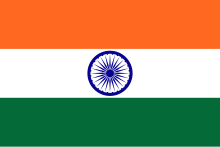1917 in India
1917 in India
In 1917, India experienced significant political and social changes against the backdrop of World War I. The year marked a pivotal moment in the Indian independence movement, as the growing discontent with British colonial rule ignited increased calls for self-governance. The Montagu-Chelmsford Reforms, proposed by the British government, aimed to address Indian demands for greater political representation, leading to the Government of India Act 1919. The year also saw the emergence of prominent leaders such as Mahatma Gandhi, who began to mobilize mass support for non-violent resistance. Additionally, social unrest and unrest among soldiers, exemplified by events like the Jallianwala Bagh massacre, underscored the tensions within the subcontinent, setting the stage for future independence efforts.
